Using neem oil on plants – how to tackle pests and diseases with this all-natural solution
Help your flowers, houseplants, and crops stay in top health while staying clear of chemicals
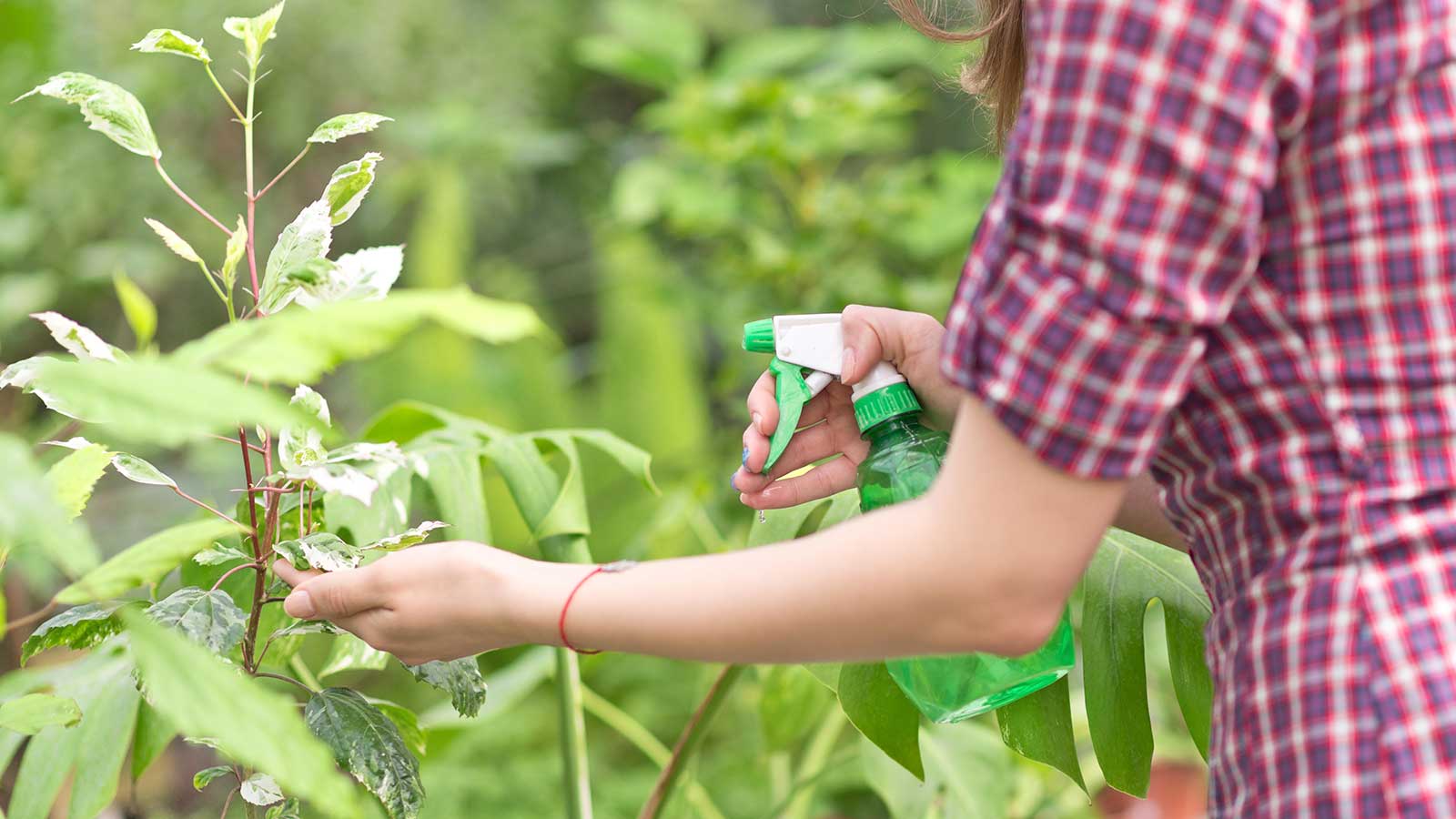

If you're interested in natural ways to look after your plants, neem oil may have fallen onto your radar. But what exactly is it, and how can it be used?
This substance is derived from the seeds of the tropical neem tree, which is native to India. Great for organic gardening, it has been used for hundreds of years to treat a range of plant pests and diseases.
Although you can buy pre-made mixes online and in garden centers (Natria Neem Oil Spray from Amazon, for instance), you can also make your own simple concoctions at home.
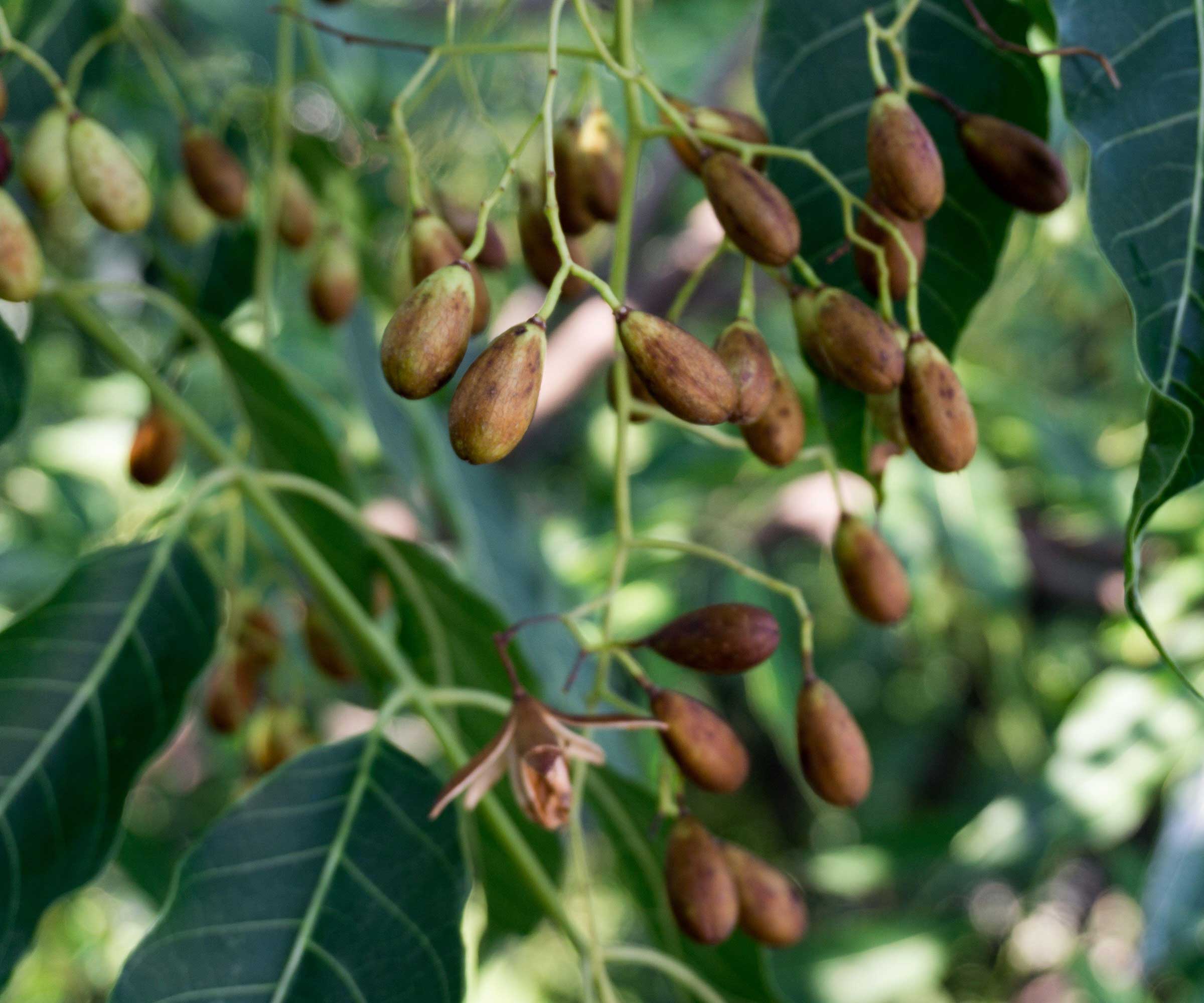
Neem oil is derived from the neem tree, also known as Azadirachta indica
The benefits of using neem oil on plants
Almost all plants can succumb to a pest invasion or two, whether they're grown indoors or out. But instead of reaching for chemical-laden pesticides, you could tackle them with diluted neem oil, instead. This organic, cold-pressed neem oil from Plantonix at Amazon is very highly rated.
Once ingested from the plant leaves by the interlopers, the active ingredient of neem oil (Azadirachtin) gets to work, disrupting their eating and growth cycles. Aphids, spider mites, whiteflies, mealybugs, thrips, and scale are just some of the bugs it can be effective against, lists Diana Cox, a plant expert from TheGardeningTalk.com.
You can use it to treat an existing pest problem, or as a preventative measure, adds Emily Auffrey, a published plant and home content creator who has over 70 houseplants in her NYC apartment.
'Additionally, neem oil can be employed to combat fungal diseases,' says Diana. These include black spot (a common problem for roses), powdery mildew, and rust.
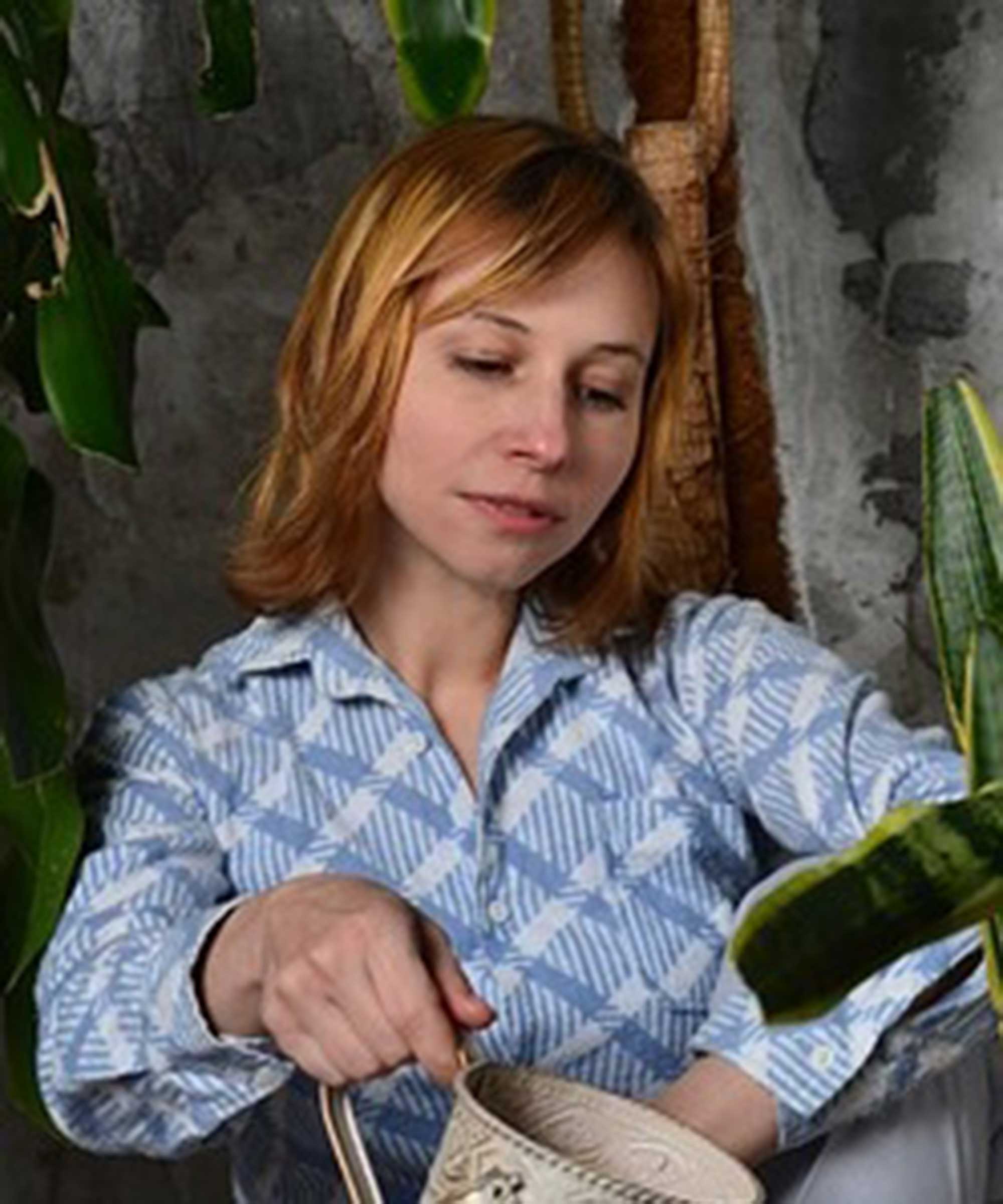
Diana Cox is the proud founder of TheGardeningTalk.com and has over a decade of gardening experience. Through her blog, she aims to inspire and motivate fellow gardeners by sharing practical techniques that are grounded in both personal experience and thorough research.
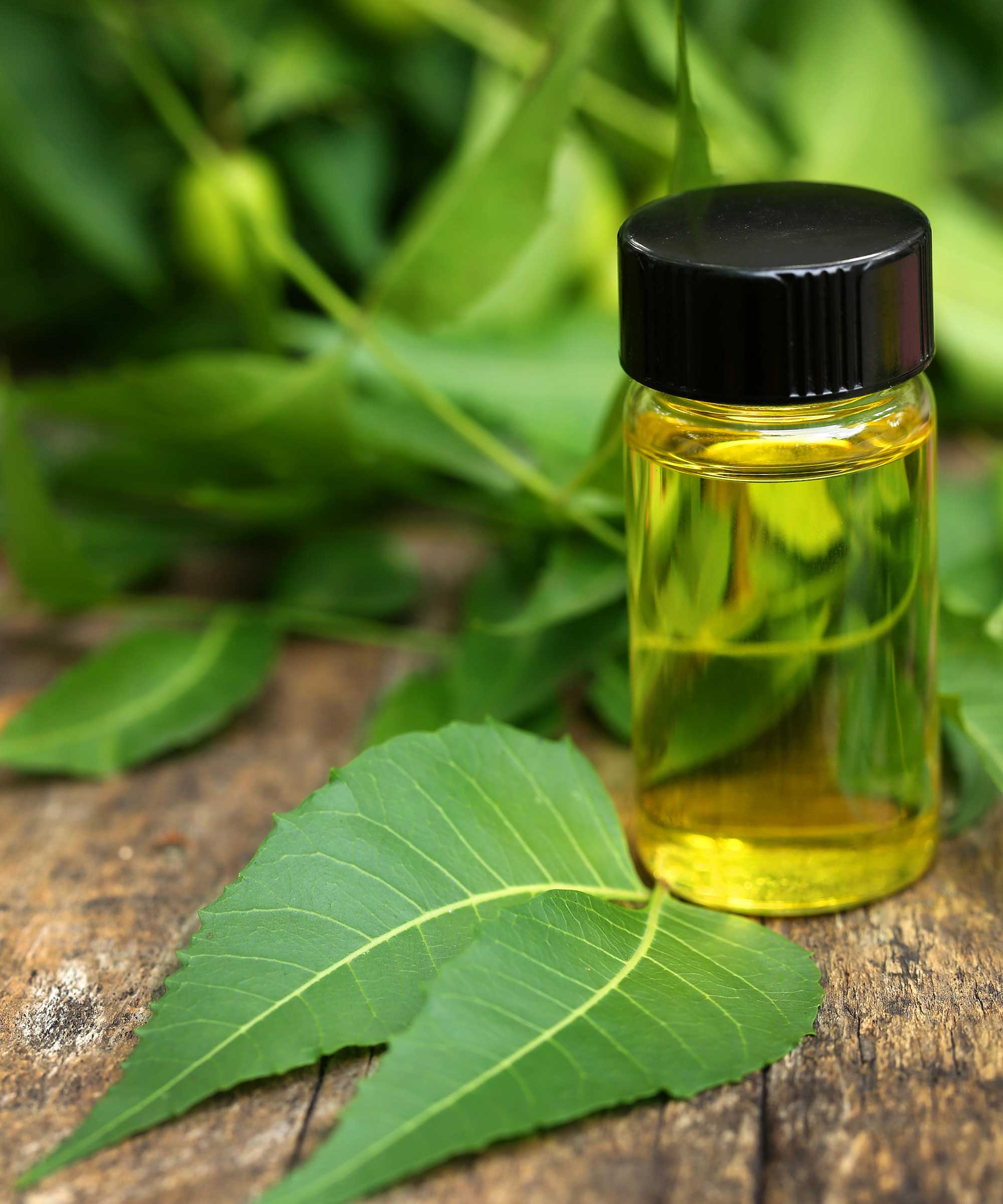
Neem oil is effective at treating multiple plant problems
How to use neem oil on plants
Neem oil can be used on all kinds of plants, including houseplants, ornamental plants, and crops in your vegetable garden. Diana explains two ways to use it: as a foliar spray and as a soil drench.
'For a foliar spray, simply combine one teaspoon of neem oil with one tablespoon of liquid soap in one gallon of water. Thoroughly spray the plant's leaves, ensuring comprehensive coverage, including the undersides. Apply the foliar spray weekly or as needed.'
Gardening expert Tony O'Neill adds that this solution should be applied during the cooler parts of the day (early morning or late evening). Otherwise, it can react with the sunlight and scorch the plant.
'To create a soil drench, mix one tablespoon of neem oil with one gallon of water,' Diana continues. 'Gently pour the solution around the plant's base, taking care to avoid contact with the leaves. Administer the soil drench on a monthly basis or as required.'
Be aware that neem oil has a strong smell, as Emily warns. Because of this, you may want to open your windows or spray houseplants outdoors before bringing them inside again, she suggests.

Tony O'Neill is an accomplished gardening expert, author, and educator. With a passion for simplifying gardening practices, he has inspired a wide audience through his popular YouTube channel and website SimplifyGardening.com. Tony's expertise empowers individuals to cultivate thriving gardens and connect with nature.
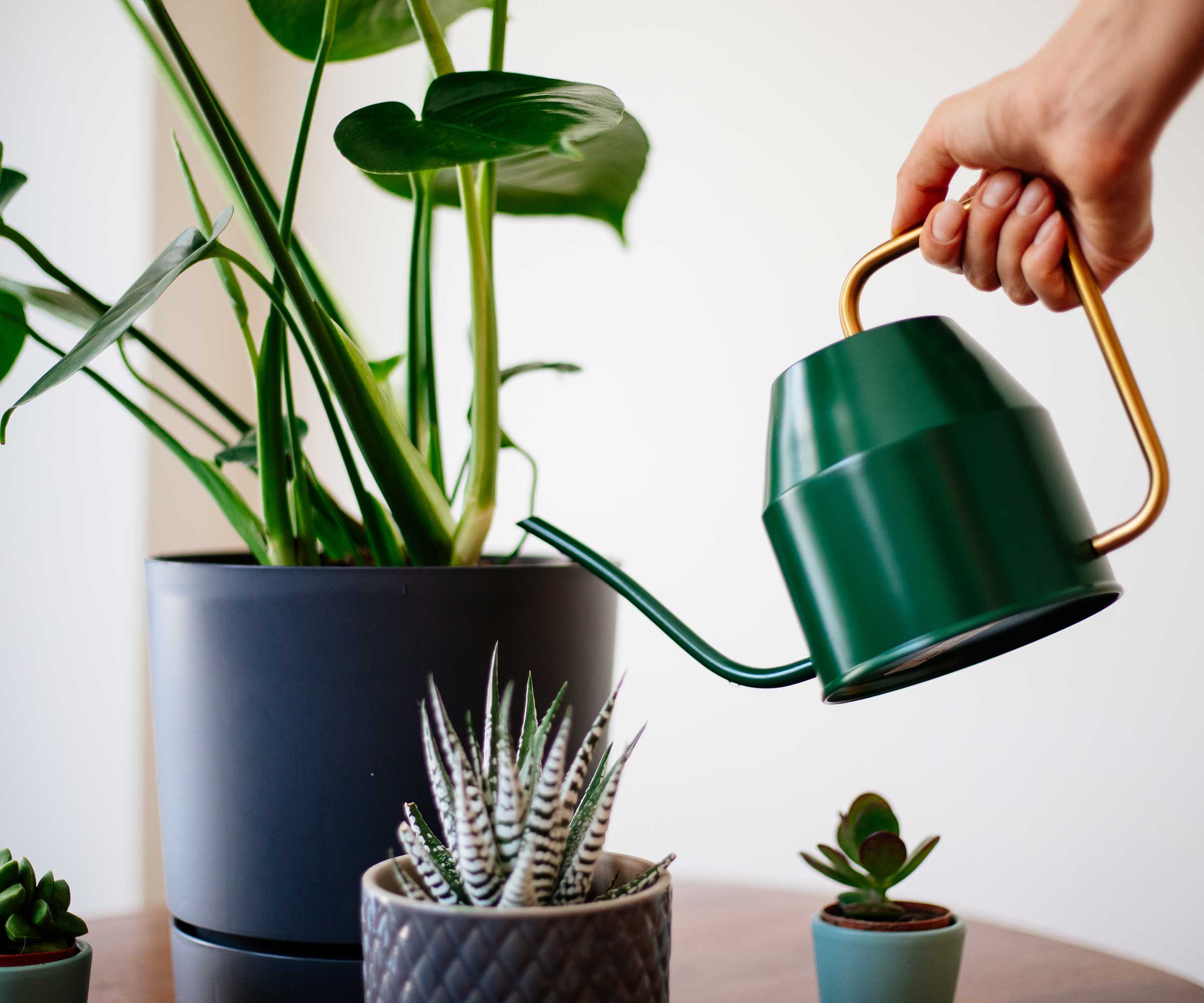
Dilute neem oil with water and use it to soak the soil of your plants
FAQs
Is neem oil safe to use?
Neem oil is safe to use when applied and stored properly. It should never be drunk and care should be taken so that it doesn't splash in your eyes.
'Even though it's non-toxic, wearing gloves is recommended to avoid potential skin irritation,' advises gardening expert Tony O'Neill. 'It should also be kept out of reach of children.
'As with all plant-care products, testing neem oil on a small portion of the plant first is advisable to ensure it does not cause any adverse reaction,' he adds.
Neem oil poses little threat to pollinators, such as bees, as they don't ingest foliage. However, spraying them directly with neem oil can harm them, so take care to avoid this.
Finally, although neem oil can be used on crops, remember to wash your fruit and veggies thoroughly before eating.
Can you use neem oil on tomato plants?
If you're growing tomatoes in your yard, neem oil can come in handy.
Unfortunately, it's not much use for treating the dreaded tomato blight. However, it's often used to effectively treat powdery mildew on tomatoes. And, in terms of pests, it's great at tackling aphids, which often target this crop.
Whatever the reason for applying neem oil to your tomato plants, ensure you wash the harvested fruit thoroughly before you eat it, as mentioned above.
Not only is seeking out natural gardening solutions better for you and your yard, but it's also often better for your wallet. And neem oil isn't the only option – there are other types of homemade bug sprays worth trying, too, made from ingredients that may already be in your cupboard.
Sign up to the Homes & Gardens newsletter
Design expertise in your inbox – from inspiring decorating ideas and beautiful celebrity homes to practical gardening advice and shopping round-ups.

Holly started writing about gardening five years ago, and she is a regular contributor to Homes & Gardens. She has also written many gardening features for Woman & Home and Real Homes, too. She has previous experience as a professional gardener, where she helped to plant and maintain private gardens. Holly has also looked after allotment plots over the years and loves to grow her own flowers and veggies from seed. In her spare time, she enjoys visiting local gardens, botanical drawing, and tending to her ever-growing collection of houseplants.
-
 'Wick away the ick' – 6 things people with clean laundry rooms always do to make this hardworking space shine
'Wick away the ick' – 6 things people with clean laundry rooms always do to make this hardworking space shineThese tips on how to clean your laundry room will banish grime
By Seraphina Di Mizzurati Published
-
 Jennifer Aniston’s bedroom is a ‘goldmine of simple sumptuousness’ – it’s 2025’s version of quiet luxury and so easy to recreate
Jennifer Aniston’s bedroom is a ‘goldmine of simple sumptuousness’ – it’s 2025’s version of quiet luxury and so easy to recreateThe actress's unique space features James Mont-designed lamps and a raised bed inside a walnut plinth – but you can recreate its understated sophistication
By Megan Slack Published